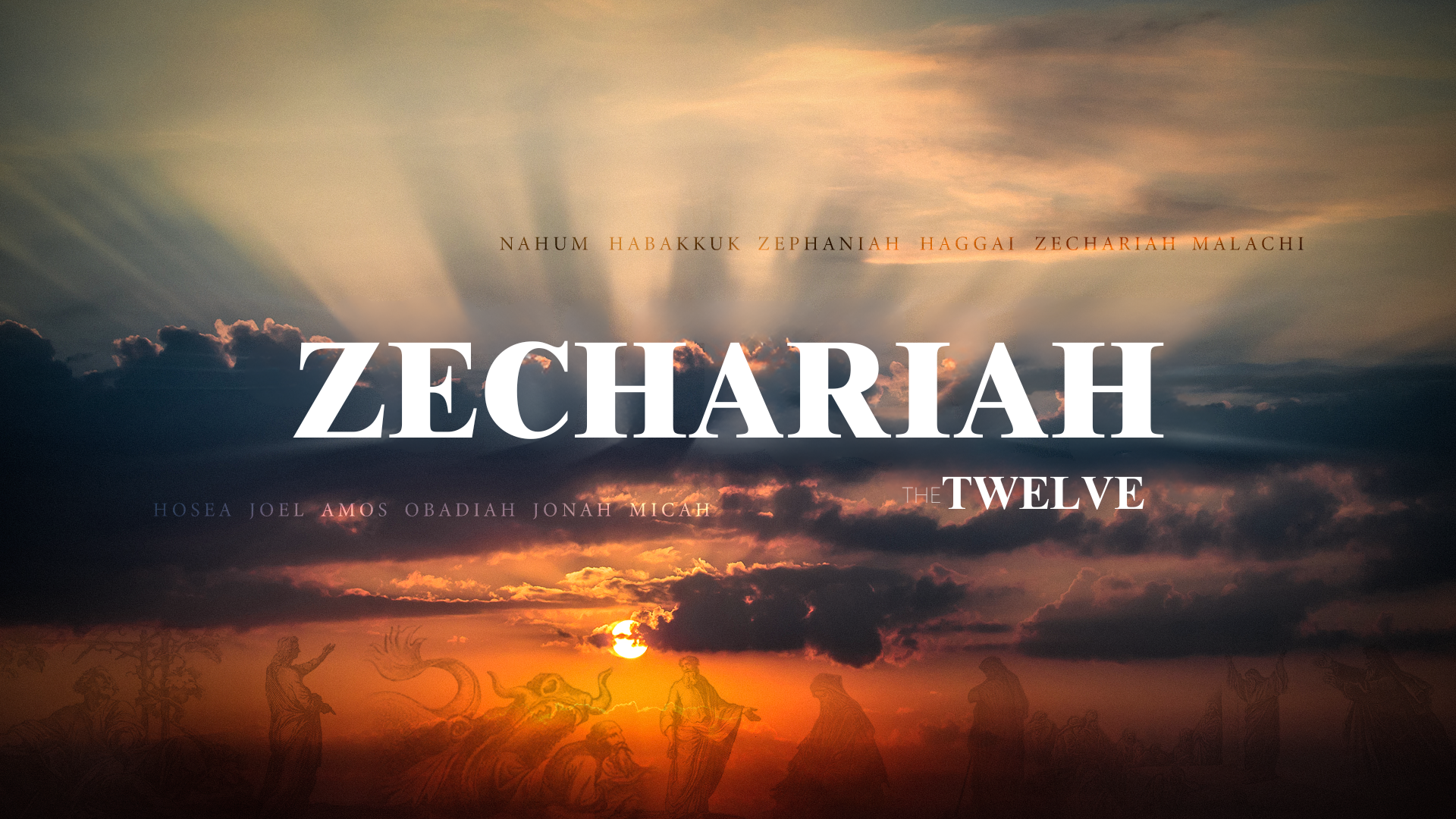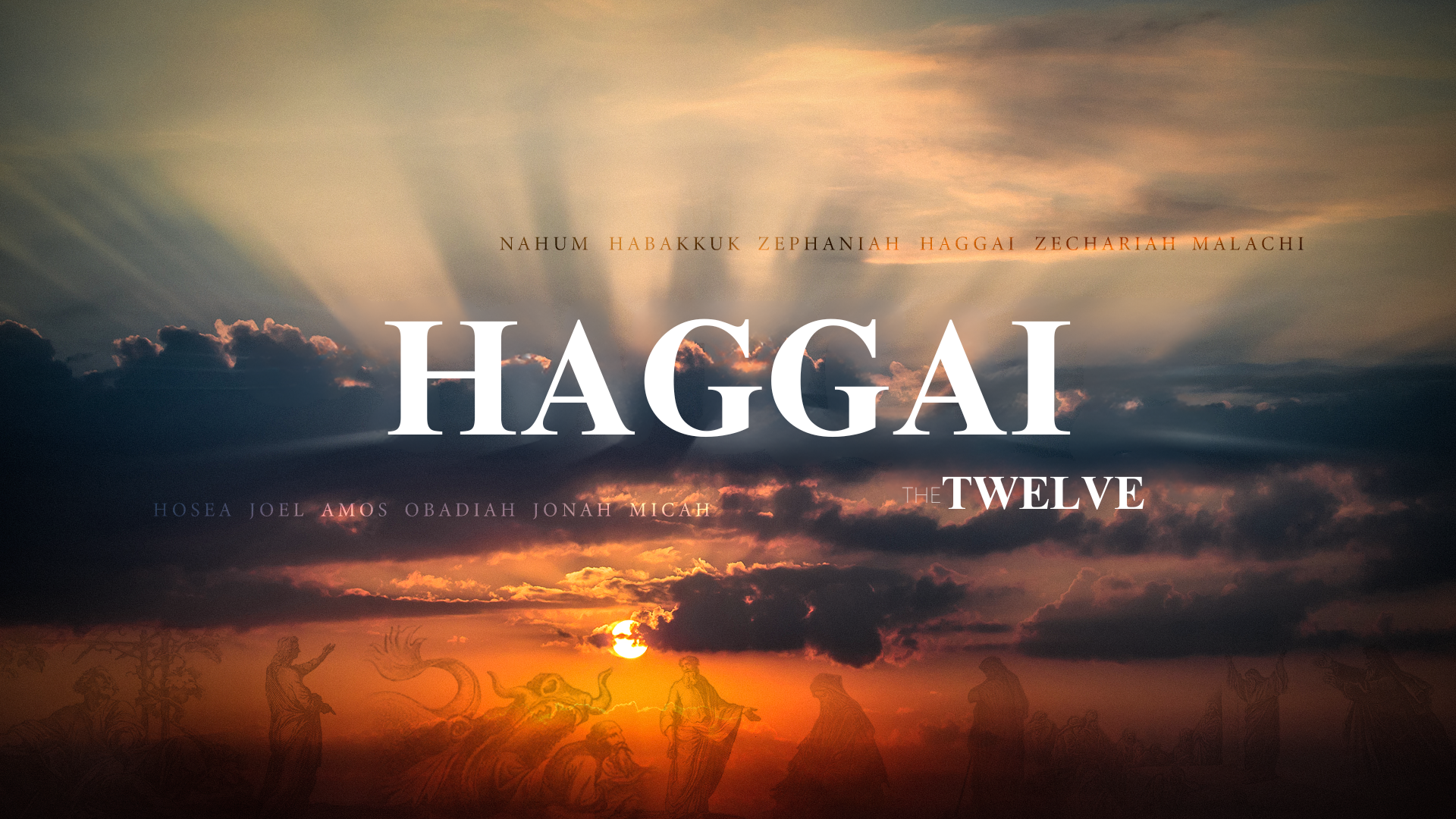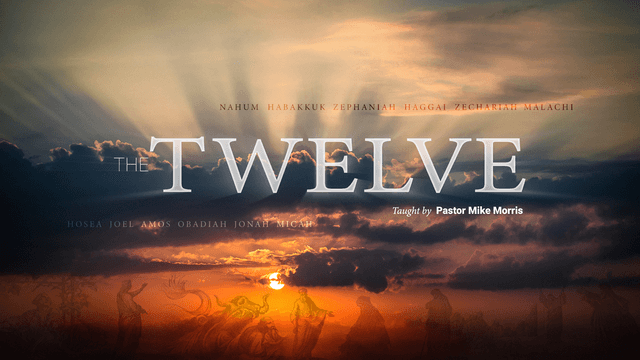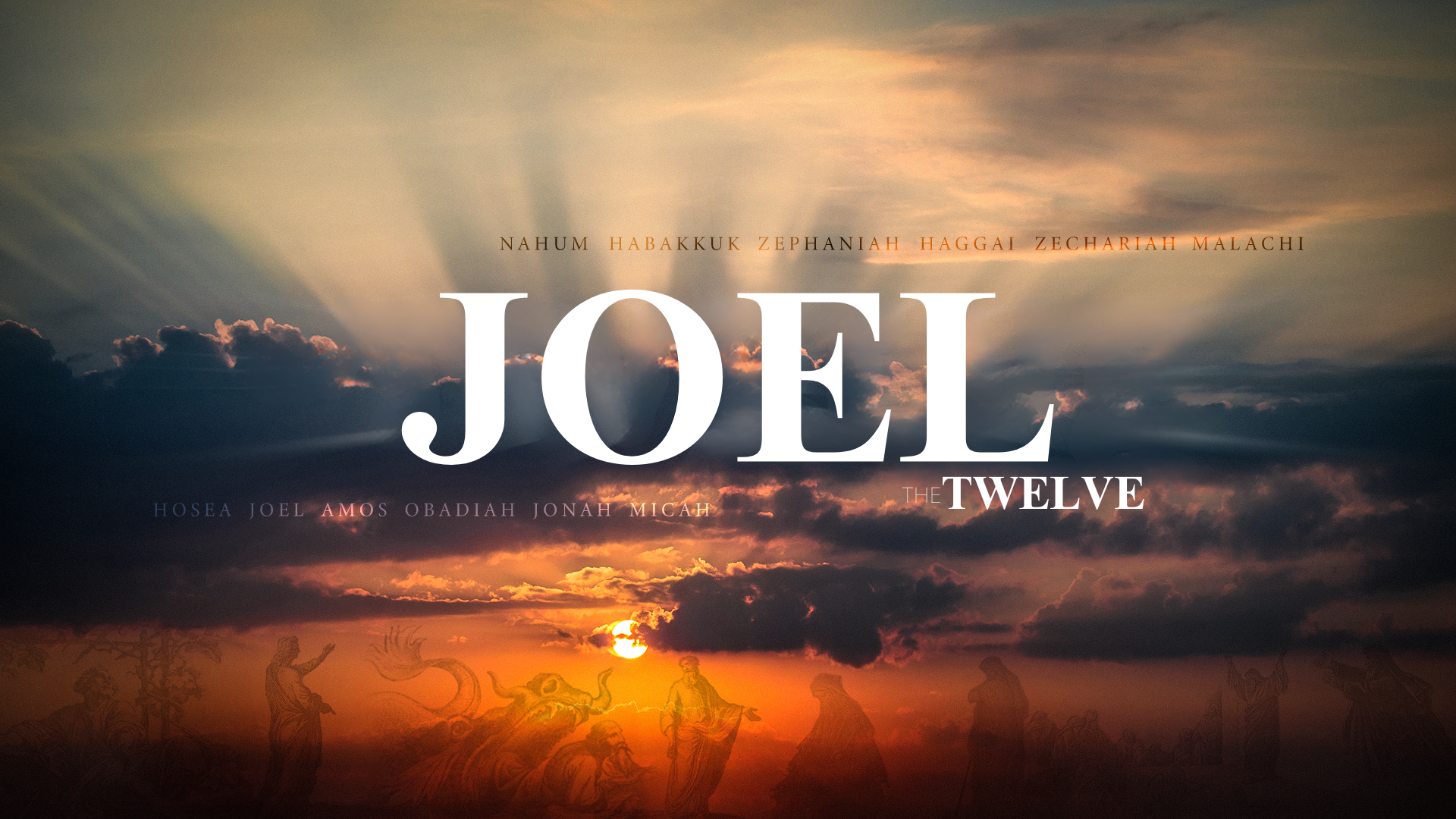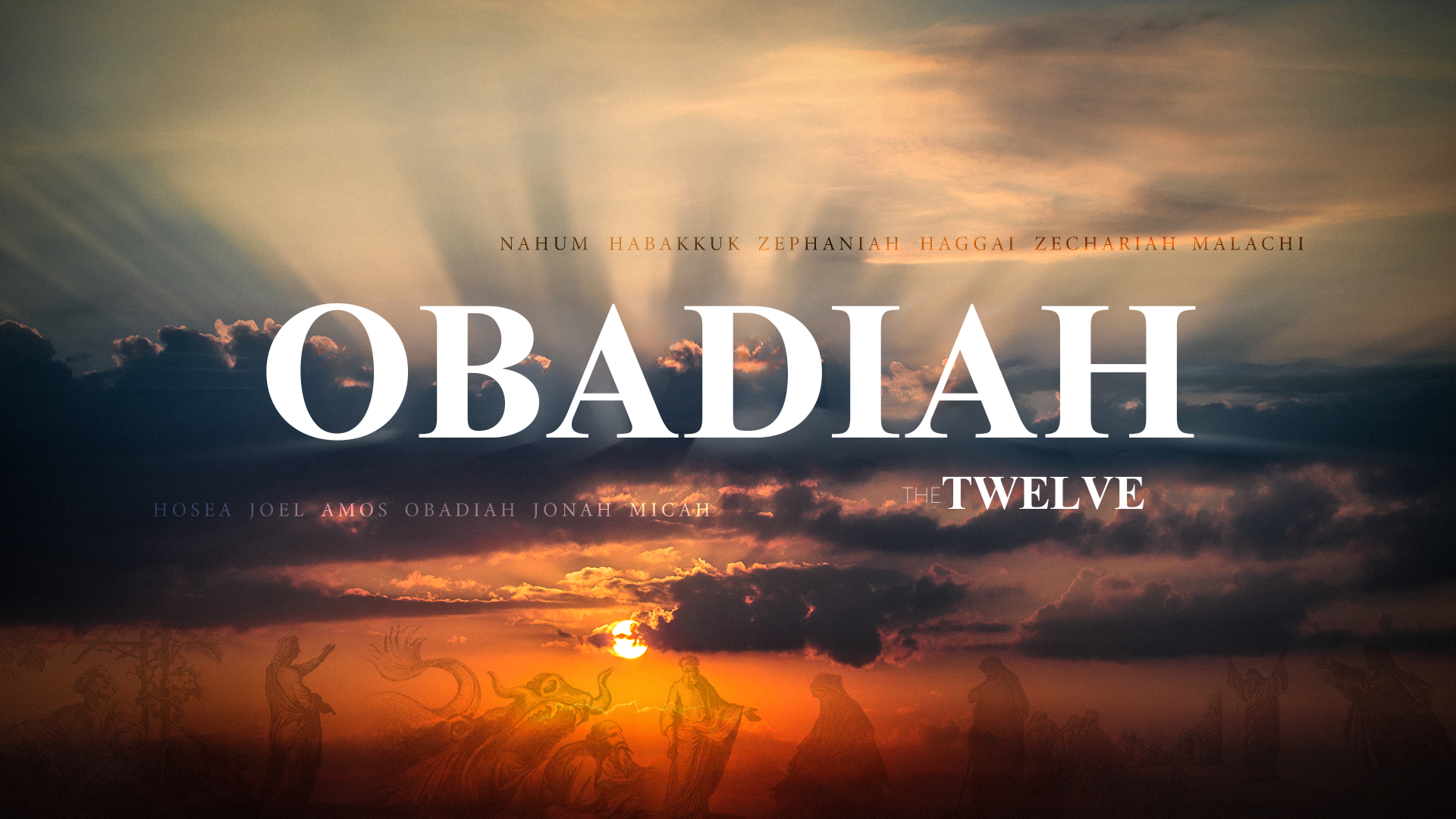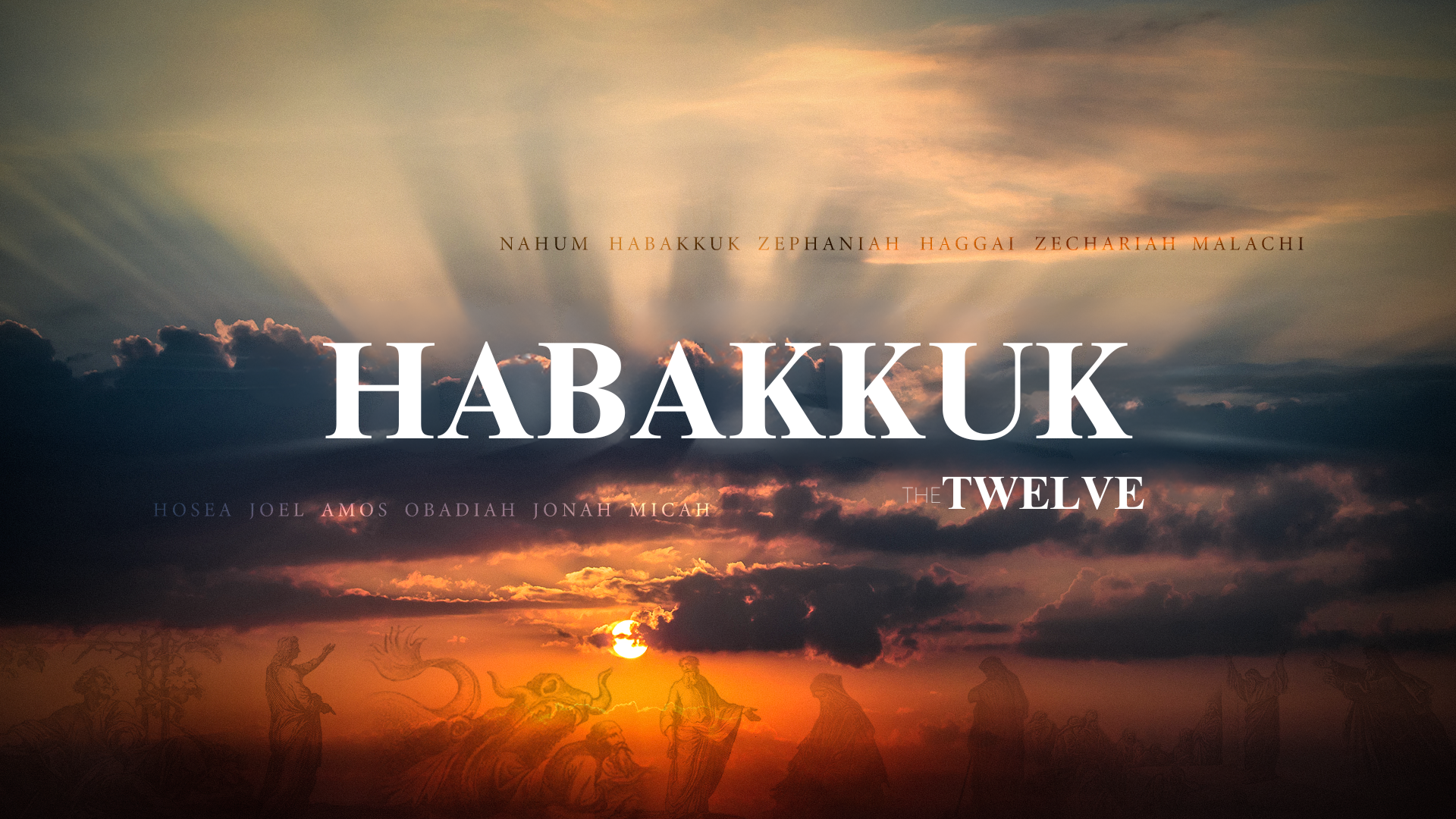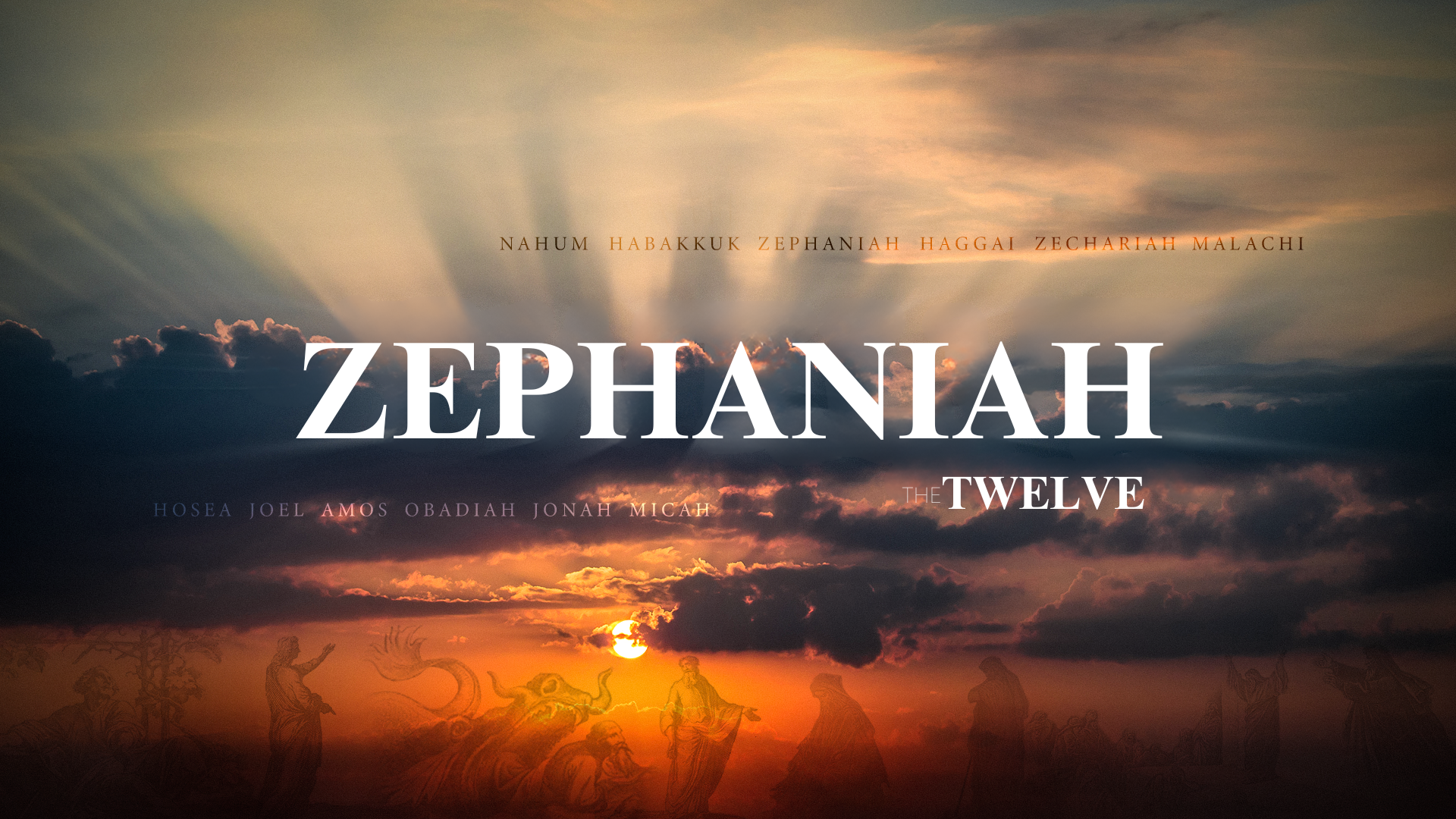MANUSCRIPT
Today we continue our third book in the series “The Twelve”, the book of Hosea...
Last time we looked at the book of Hosea, we examined chapters six and seven, where we saw a stunning example of false repentance on the part of the people of Israel...Israel arrogantly proclaimed that the Lord would forgive them, that He would heal them, bind them up, revive them, and raise them up...but the Lord God was not going to do that...why? As He said of Israel, Your love is like a morning cloud, like the dew that goes early away... their capricious commitment would not stand the test of time...
The hearts of the people of Israel had turned back to their covenant God in word only, not in deed...in contrast, we briefly looked at King David’s confession in Psalm 51 to see a truly repentant person...
Now we return to Hosea to see the continued decline of Israel and the judgment God would bring upon them...we’ll pick up the text in chapter 8 verse 1...and I want us to look at this question -- (SLIDE 1) -- when a nation pursues sin with all their hearts, when they ignore a call to true repentance, when they arrogantly claim God’s forgiveness and blessing as if they were walking with Him in steadfast obedience and trust...what happens when a nation is guilty of prideful sin? (BACK TO “THE TWELVE” SLIDE)
Let’s see what happened in the life of Israel
Set the trumpet to your lips!
One like a vulture is over the house of the Lord,
because they have transgressed my covenant
and rebelled against my law.
2 To me they cry,
“My God, we—Israel—know you.”
3 Israel has spurned the good;
the enemy shall pursue him.
This chapter opens with a word from God urging the people to take warning, to hear the trumpet, in Hebrew “shofar,” the ram’s horn that was traditionally used by Israel to warn the nation or call them to war...we saw the same word in Hosea 5.8, translated as “horn”
Why blow the ram’s horn? For the people were in danger and did not know it...there was “one like a vulture”, circling over the house of the Lord... what Israel called the “house of the Lord” was dead, and vultures were circling, likely a figure of the coming Assyrian Empire...
Why were they spiritually dead? Because of their transgressions and rebellion...they knew the Law of God, but refused to submit to it and instead violated it...
Verse 2 is the key to this passage... 2 To me they cry, “My God, we—Israel—know you.”
This is the first answer to our question: what happens when a nation abandons their God, give themselves over to willful sin, refusing to repent... (SLIDE 2)
They become self-deceived
The people of Israel were deceiving themselves, believing they knew God and that God was pleased with them, when the truth was that they had ceased to know God, and He was about to send a devastating judgment upon them (BACK TO “THE TWELVE” SLIDE)
The world is full of people who claim to know God...even some who claim to be God...and there are many who, like ancient Israel, confidently proclaim their righteousness...the sinful pride and arrogance of the people of Israel remind us of the Jewish leaders of Jesus’s day...certain of God’s approval, blind to their own sin, focused on the externals of ritual and ceremony, ignorant of the true issues of the heart and mind...Matthew 7.21-23
21 “Not everyone who says to me, ‘Lord, Lord,’ will enter the kingdom of heaven, but the one who does the will of my Father who is in heaven. 22 On that day many will say to me, ‘Lord, Lord, did we not prophesy in your name, and cast out demons in your name, and do many mighty works in your name?’ 23 And then will I declare to them, ‘I never knew you; depart from me, you workers of lawlessness.’
Thinking or believing that God knows you is not the same as actually knowing God and being known by Him...loudly proclaiming “Lord, Lord” and even doing religious works will not gain you entry into heaven...only a heart broken by a knowledge of sin and then redeemed by the blood of our Savior, Jesus Christ, will suffice for that...
We see that the first effect of a heart hardened by persistent sin is that people will deceive themselves into thinking they have a relationship with God they do not have...
As we continue into verse 4, we see the second answer to our question: not only are they self-deceived, but they are self-willed (SLIDE 3)
4 They made kings, but not through me.
They set up princes, but I knew it not.
With their silver and gold they made idols
for their own destruction.
As we’ve seen throughout the books of Amos and Hosea, Israel committed two grievous sins: number one, engaging in idolatrous worship of false gods and number two, committing sins against their fellow Israelites, particularly unjust and hurtful abuse of the poor...these sins led to Amos’s call in Amos 5.24
let justice roll down like waters, and righteousness like an ever-flowing stream.
Here, the Lord condemns them for living just as the Canaanite nations which surrounded them...they chose their own leaders instead of submitting to the Davidic line of kings anointed by God, with no regard for seeking the Lord’s desires or will, even accepting common thugs and assassins as their leaders; the Israelites sought out and created idols, specifically golden calves in Dan and Bethel, worshipping them as if they were God; instead of repenting of their sin and turning back to the true God, Israel followed their own path, sought out their own way, picked their own leaders, made idols for their own worship…earning God’s anger and punishment
This is a manifestation of mankind’s oldest sin -- pride
When we see this sin around us, it’s not surprising...because we know who we were before Christ, and the depth and breadth of our sin, it’s easy to understand the pride and lack of faith of those still caught in the world...we really wouldn’t expect anything different
Even among the people of God, I think we are all, in one way or another, guilty of this sin...of trusting ourselves instead of the Lord; of listening to ourselves instead of the voice of the Holy Spirit; of seeking our own way in this world instead of our Father’s way; of worshipping the things of the world by valuing them above the things of God; of seeking others to lead us instead of our Good Shepherd; of making our own judgments about what is best for us and calling it “spiritual discernment;” of reasoning in our own minds and calling it “prayer”
There are a thousand examples we could name, many from our own experiences, and they would look much like the sins of Israel -- flagrant self-will -- sometimes coming straight from our flesh, at other times appearing with a religious veneer over the top of it -- but either way, the Spirit within us knows our hearts and will bring conviction
Now we reach the prophecy of the eventual outcome of judgment for Israel, the climax of the judgment oracles of the book, but also a principle we need to learn...
7 For they sow the wind,
and they shall reap the whirlwind.
Let’s look at Israel first...the nation would indeed reap the whirlwind for the sins she had sown in more than 200 hundred years of existence as the northern kingdom
Their sin is well-documented throughout the historical and prophetic books of the Old Testament...a short list will do to make the point...after the division of the united kingdom of Israel under Solomon, Israel immediately descended into idolatry, refusing to come to Jerusalem for worship, but instead adopting the calf-god of Baal as their object of worship at the cultic centers at Dan and Bethel...they added to this idolatry sexual immorality, “on every high hill and under every green tree” ... they abandoned even the pretense of care and concern for their fellow Israelites; instead, the rich and politically powerful cheated the poor and weak, engaging in abusive business practices and unnecessary cruelty, even keeping cloaks overnight as a pledge, a practice specifically prohibited in the Levitical Law...and their leaders never rose to even a minimal level of competence or godliness, but instead deteriorated into a pack of assassins and criminals desperately trying to gain and keep power as the nation fell apart around them
For all this, and a hundred more sins, Yahweh God is now nearly speechless in anger and frustration...listen to His voice...
5 I have spurned your calf, O Samaria.
My anger burns against them.
How long will they be incapable of innocence?
6 For it is from Israel;
a craftsman made it;
it is not God.
The calf of Samaria
shall be broken to pieces.
Paul’s words in Romans 1.25 fit this situation perfectly when he speaks of the nature of humanity’s sin...
25 ...they exchanged the truth about God for a lie and worshiped and served the creature rather than the Creator...
God promised there would be a fulfillment of the judgment based on the sins they have sown…they would suffer famine, abandonment by the allies they sought out and thought would protect them, an inability to pay the tribute demanded by their allies or their conquerors or both, and eventually, destruction at the hands of their enemies
The standing grain has no heads;
it shall yield no flour;
if it were to yield,
strangers would devour it.
8 Israel is swallowed up;
already they are among the nations
as a useless vessel.
9 For they have gone up to Assyria,
a wild donkey wandering alone;
Ephraim has hired lovers.
10 Though they hire allies among the nations,
I will soon gather them up.
And the king and princes shall soon writhe
because of the tribute.
We’ve seen the promise of judgment upon the house of Israel, and we know that He fulfilled that promise through the Assyrian Empire’s crushing of the northern kingdom in 722 BC...the Lord God is vindicated as He brings a necessary judgment upon the people and their so-called “leaders”
Now let’s turn back to that principle depicted in the judgment of Israel, as the Lord promises that for their sins, their sowing to the wind, Israel would reap the whirlwind
We see the principle in Galatians 6.7-8
7 Do not be deceived: God is not mocked, for whatever one sows, that will he also reap. 8 For the one who sows to his own flesh will from the flesh reap corruption, but the one who sows to the Spirit will from the Spirit reap eternal life.
(SLIDE 4) That captures the third answer to our question...a nation will reap what they have sown
In Israel’s case, they had sown sin in abundance...and in even greater abundance, they would reap the consequences of judgment...the comparison is 10 to 20 fold...the difference between a ten-mile per hour wind and a tornado of nearly 200 miles per hour
We see the same principle at work -- whatever you sow, that you will reap (BACK TO “THE TWELVE” SLIDE)
Now let me speak quickly but clearly to one point -- there is but a single case that uses the same language of Hosea 8.7 in which a person is said to have sown one thing and reaped another...it’s Psalm 126.4-6
4 Restore our fortunes, O Lord,
like streams in the Negeb!
5 Those who sow in tears
shall reap with shouts of joy!
6 He who goes out weeping,
bearing the seed for sowing,
shall come home with shouts of joy,
bringing his sheaves with him.
When you see this single case, you quickly notice that the Lord is promising a reversal of judgment...this instance does not make a case to overturn the clear statement of the principle in Galatians...
We clearly see this principle of sowing and reaping throughout Scripture...
Proverbs 22.8: Whoever sows injustice will reap calamity, and the rod of his fury will fail.
Hosea 10.12: You have plowed iniquity; you have reaped injustice;
Job 4.8: As I have seen, those who plow iniquity and sow trouble reap the same.
We see it also in the first song in the psalter of ancient Israel, Psalm 1
Blessed is the man
who walks not in the counsel of the wicked,
nor stands in the way of sinners,
nor sits in the seat of scoffers;
2 but his delight is in the law of the Lord,
and on his law he meditates day and night.
3 He is like a tree
planted by streams of water
that yields its fruit in its season,
and its leaf does not wither.
In all that he does, he prospers.
4 The wicked are not so,
but are like chaff that the wind drives away.
5 Therefore the wicked will not stand in the judgment,
nor sinners in the congregation of the righteous;
6 for the Lord knows the way of the righteous,
but the way of the wicked will perish.
Look at the difference between the righteous and the wicked...see what they are sowing and what they are reaping...
For the righteous, they sow in holy living based on the Word of God, the subject of their meditation day and night...based on that sowing, the righteous are like a well-watered, fruitful tree, prosperous in all they do
For the wicked, the psalmist succinctly says “they are not so” -- they are the opposite of the life and blessing of the righteous...they will not stand with the congregation of God, but instead will face judgment, and their way will perish
But we understand that this principle sometimes doesn’t seem to work the way we think it should, nor as promptly as we expect...the psalmist Asaph thought so, too...in Psalm 73 (verses 2-3, 12-19), he expresses his faith in God as Asaph describes what he learned about sowing and reaping
2 But as for me, my feet had almost stumbled,
my steps had nearly slipped.
3 For I was envious of the arrogant
when I saw the prosperity of the wicked.
Behold, these are the wicked;
always at ease, they increase in riches.
13 All in vain have I kept my heart clean
and washed my hands in innocence.
14 For all the day long I have been stricken
and rebuked every morning.
15 If I had said, “I will speak thus,”
I would have betrayed the generation of your children.
Let me add one comment -- he says that he almost stumbled, because he didn’t see this principle at work as he thought he would...the wicked prospered, while the righteous had no gain or advantage for their obedience to God’s word...and he admits that his understanding was flawed...then he continues...
16 But when I thought how to understand this,
it seemed to me a wearisome task,
17 until I went into the sanctuary of God;
then I discerned their end.
18 Truly you set them in slippery places;
you make them fall to ruin.
19 How they are destroyed in a moment,
swept away utterly by terrors!
This principle remains true...no exceptions...it might be fulfilled in this life, or it might be fulfilled in the next, but as Paul says, do not be deceived, God is not mocked...what you sow, that you will reap
Now let’s return to Hosea 8 for a more full explanation of what lay in store for Israel...
11 Because Ephraim has multiplied altars for sinning,
they have become to him altars for sinning.
12 Were I to write for him my laws by the ten thousands,
they would be regarded as a strange thing.
13 As for my sacrificial offerings,
they sacrifice meat and eat it,
but the Lord does not accept them.
Now he will remember their iniquity
and punish their sins;
they shall return to Egypt.
14 For Israel has forgotten his Maker
and built palaces,
and Judah has multiplied fortified cities;
so I will send a fire upon his cities,
and it shall devour her strongholds.
The people -- even the priests -- had no knowledge of the Law...that had all been lost in the generations since the united monarchy...recall how in Amos the chief priest had tried to force the prophet to leave the country and return to Judah...that’s indicative of the attitude of the northern kingdom to God’s word...as the text says, the Law was now to them a “strange thing”...and the Lord will not accept their sin offerings, but instead will remember their sins and punish them for them...as He says in Hosea 7.2, ...they do not consider that I remember all their evil. Now their deeds surround them; they are before My face.
Chapter 9 continues the theme of judgment...
Rejoice not, O Israel!
Exult not like the peoples;
for you have played the whore, forsaking your God.
You have loved a prostitute’s wages
on all threshing floors.
2 Threshing floor and wine vat shall not feed them,
and the new wine shall fail them.
3 They shall not remain in the land of the Lord,
but Ephraim shall return to Egypt,
and they shall eat unclean food in Assyria.
Hosea is referring back to Genesis again here...Israel (Jacob) went to Egypt when famine struck in the land of Canaan (Gen 42), to be saved by his own son, Joseph...here, as before, Israel (by the name of Ephraim) is removed from the land in exile...
4 They shall not pour drink offerings of wine to the Lord,
and their sacrifices shall not please him.
It shall be like mourners’ bread to them;
all who eat of it shall be defiled;
for their bread shall be for their hunger only;
it shall not come to the house of the Lord.
A famine is coming, for the harvest has failed...threshing floor and wine vat are empty
Mourner’s bread of low quality...not suitable for offering to the Lord nor really for eating
5 What will you do on the day of the appointed festival,
and on the day of the feast of the Lord?
6 For behold, they are going away from destruction;
but Egypt shall gather them;
Memphis shall bury them.
Nettles shall possess their precious things of silver;
thorns shall be in their tents.
Here again we find mention of Egypt...the picture is one of destruction...if Israel were to run to Egypt for relief (to be gathered to them), they would not be saved, but would instead be buried (Memphis)
The end of verse 6 is very nearly repeated in the next chapter, but in both cases, the sense is this: the devastation and the destruction caused by the Assyrians will be so complete that the tents and homes of Israel will be taken over by weeds...thorns and nettles...if you were to enter the towns abandoned by those taken into captivity, you would find tents taken over by thorny vines, and precious vessels left lying on the ground among the debris...this is a good example of the picture-language of this prophetic book
7 The days of punishment have come;
the days of recompense have come;
Israel shall know it.
The prophet is a fool;
the man of the spirit is mad,
because of your great iniquity
and great hatred.
8 The prophet is the watchman of Ephraim with my God;
yet a fowler's snare is on all his ways,
and hatred in the house of his God.
9 They have deeply corrupted themselves
as in the days of Gibeah:
he will remember their iniquity;
he will punish their sins.
Punishment is surely coming to Israel...they are disrespectful of the prophets and the spiritual man (from God)...verse 9 is the key...”they have deeply corrupted themselves as in the days of Gibeah” -- Gibeah was the location of perhaps the lowest point of Israel’s national life, found in Judges 19 and 20, the story of a Levite whose concubine was savagely murdered on the doorstep of the family sheltering them; the Levite cuts her to pieces and sends the parts throughout the twelve tribes of Israel, inciting a civil war against the guilty tribe, Benjamin...the reference to the corruption of Gibeah would have been well known to all Israelites...and Hosea is clear, repeating the word from 8.13: God will remember their iniquity -- punishment is now certain
Yet at the beginning, Israel had been so full of promise, carried graciously by the Lord God Himself out of bondage in Egypt...listen to the Lord’s heart here
10 Like grapes in the wilderness,
I found Israel.
Like the first fruit on the fig tree
in its first season,
I saw your fathers.
But the people didn’t live up to their early promise...
But they came to Baal-peor
and consecrated themselves to the thing of shame,
and became detestable like the thing they loved.
We discover the story of Baal-Peor in Numbers 25.1-5 and learn why it is the perfect example for Hosea to use to illustrate the spiritual failure of Israel, following in the footsteps of their ancestors...
While Israel lived in Shittim, the people began to whore with the daughters of Moab. 2 These invited the people to the sacrifices of their gods, and the people ate and bowed down to their gods. 3 So Israel yoked himself to Baal of Peor. And the anger of the Lord was kindled against Israel. 4 And the Lord said to Moses, “Take all the chiefs of the people and hang them in the sun before the Lord, that the fierce anger of the Lord may turn away from Israel.” 5 And Moses said to the judges of Israel, “Each of you kill those of his men who have yoked themselves to Baal of Peor.”
The Lord God is deadly serious about idolatrous worship of false gods...
11 Ephraim's glory shall fly away like a bird—
no birth, no pregnancy, no conception!
12 Even if they bring up children,
I will bereave them till none is left.
Woe to them when I depart from them!
13 Ephraim, as I have seen, was like a young palm planted in a meadow;
but Ephraim must lead his children out to slaughter.
14 Give them, O Lord—
what will you give?
Give them a miscarrying womb
and dry breasts.
15 Every evil of theirs is in Gilgal;
there I began to hate them.
Because of the wickedness of their deeds
I will drive them out of my house.
I will love them no more;
all their princes are rebels.
16 Ephraim is stricken;
their root is dried up;
they shall bear no fruit.
Even though they give birth,
I will put their beloved children to death.
17 My God will reject them
because they have not listened to him;
they shall be wanderers among the nations.
This final passage is one of unrelenting brutal judgment...it’s summarized in verse 17...God will reject Israel because they rejected Him, they have not listened to Him, they have ignored Him...as a result, they would be taken captive and sent into exile, to be wanderers among the Gentile nations...
Let’s return to our question: When a nation is guilty of this kind of prideful sin we see in ancient Israel, what happens?
They are self-deceived, convincing themselves that they’ve done nothing wrong...and they fall into the sin of being self-willed, rejecting the sovereign lordship of God and choosing instead to be their own rulers according to their own arrogant will
And as sure as God is on His Heavenly throne, that nation will reap what it has sown
So what are we to do with this picture of ancient Israel?
Learn these lessons for ourselves and our community...it’s not hard to see this same situation in our day...as nations, and individuals, walk away from God, they will fall into the same sins of self-deception and self-will as ancient Israel did...and unless nations, and individuals, turn back to God, they will most certainly reap what they have sown
So what can we do?
Be aware of sin...be conscious and sensitive to the Spirit as he leads you to repentance
When you are aware of sin, turn from it quickly...waiting only allows it to gain a foothold in your heart and mind
If the Lord chooses to discipline you, receive it and seek to learn from it

Taught by Mike Morris
Associate Pastor of Verse By Verse Fellowship
The Twelve Series
